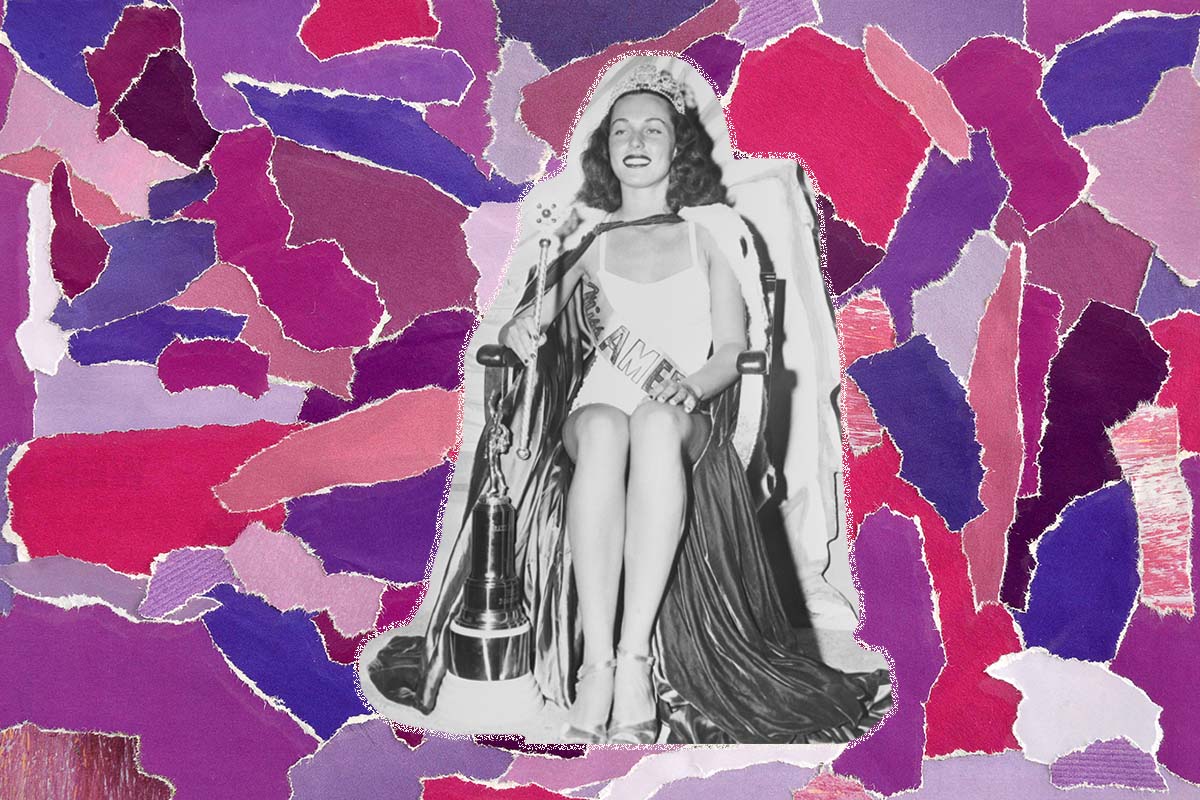Bess Myerson was and still is the only Jewish Miss America. The story of her unlikely triumph, which gave hope to so many Jewish beauty queens, is featured in The One and Only Jewish Miss America, a new film directed by David Around, which recently premiered at the Big Bear Film Summit in Big Bear Late, California. It marks the 75th anniversary of Bess’s triumphant win.
Bess, who was born into a poor family in The Bronx in 1924, went onto win the world’s most famous beauty pageant in 1945, at the tail of the Second World War, a time when anti-Semitism was so rampant she had to flee her official duties as Miss America well before her reign was over.
Bess was the daughter of Russian-Jewish immigrants who raised her and her two sisters among 250 Jewish families in the Sholem Aleichem Houses, a housing coop built by Jewish labor activists in the 1920s. Her dad was a handyman. She began piano lessons at 9 and eventually studied music at Hunter College. At just 12, she was 5’10” and was forced to act in a school play as Popeye’s lanky girlfriend, Olive Oyl. To her community she was the prettiest girl “since Queen Esther.”
Her height lent well to the pageant scene, where she was advised to change her surname to something “less Jewish,” but declined. “You have to understand. I cannot change my name,” she told the media. “If I should win, I want everybody to know that I’m the daughter of Louie and Bella Myerson.” Looking back on it later in life, she claimed it was the most important decision she ever made. “It told me who I was, that I was first and foremost a Jew.”
By embracing her Jewish identity in the public eye — at a time when many American Jews felt the need to play down their ethnicity — Bess became a true trailblazer. Before she left her family’s home to compete in Miss America, her father told her to not forget who she was.
“I had a Jewish social conscience,” she said. “I was determined to give the crown some real weight.” She referred to it as kavod, the Hebrew word for respect. “Becoming famous doesn’t bring kavod,” she said. “Investing your strength and substance and love in a good cause does.”
After winning in 1945, Bess became an instant star. To the Jewish community in New York and New Jersey, it was more than just a beauty contest; it helped them rise to the spotlight. “Beauty with brains, that’s Miss America of 1945!” said one newspaper headline.
But even while touring the country for her win, some protesters arrived with “No Jews” placards. Some sponsors dropped out of Miss America, and on her victory lap as the winner, hotels and country clubs denied her entry. Appearances were cancelled and she felt rejected.
“Here I was, chosen to represent American womanhood, and then America treated me like this,” she was quoted.
One year after becoming Miss America, Myerson married Allan Wayne, a navy captain, and their daughter was born a year later. Myerson started her master’s in music at Columbia University but dropped out to work in TV, eventually separating from her alcoholic husband in 1956.
As Myerson’s daughter, Barbara “Barra” Grant, wrote in the New York Times, “My mother’s unlikely win at a time of rampant anti-Semitism became an important moment in Jewish American history, and she changed a lot of hearts and minds along the way.”
In 1945, the Anti-Defamation League approached Myerson, hiring her to go on a national tour across the country, speaking at high schools about the dangers of hate. It was this very tour that launched her lifelong passion for justice.
In the 1960s she turned her attentions to political power. Bess became the first consumer commissioner in New York in 1969, under the power of mayor John Lindsay. During the mayoral race of 1977, she held hands publicly with candidate Ed Koch, whose sexuality was under scrutiny as rumors circulated he was gay. She helped him win, according to key Koch advisors, and he made her the commissioner of cultural affairs in 1983,
In 1972, during the height of the Vietnam War, Bess gave a speech at a Mother’s Day celebration, saying, “While our soldiers have been sent out to fight the enemy, the enemy is here. The enemy is in Union Square, Times Square and Harlem—it’s called hunger and despair.”
“She had tremendous empathy for the underdog,” her daughter added.
In the 1980s, Bess’s life became awash in scandal after she fell in love with a young sewage contractor who was convicted of tax fraud, the two becoming tabloid folder. An old People magazine cover headline read, “The shocking story of how her love for a criminal led our most famous beauty queen to disgrace.”
Still, nothing could take away Bess’s legacy as the first Jewish woman to be crowned Miss America. As the beauty queen herself once said, “Men go after me, and I choose among them.”
Header image design by Emily Burack. Image of Bess: Royal robed Bess Myerson of New York City, sits on her newly won throne after her selection as “Miss America” in annual beauty contest pageant at Atlantic City by Bettmann / Contributor / Getty Images.



